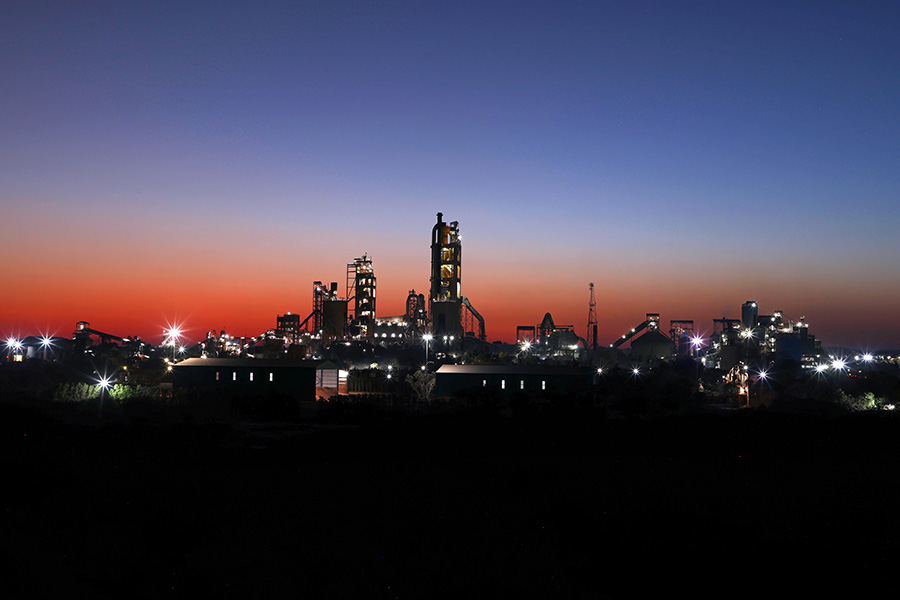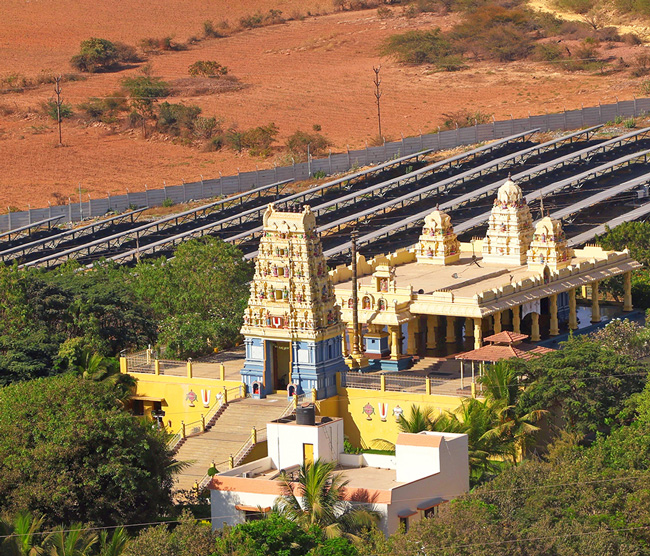Advancing sustainability commitments for a better tomorrow
In pursuing a greener future, RAIN is committed to sustainable practices. Through renewable energy investments and global engagement, we are reducing carbon footprints and aligning with United Nations (UN) Global Compact principles, fostering a resilient, eco-conscious world for generations ahead.

RAIN set a clear objective to formalise our commitment to sustainability and ethical business practices by becoming a signatory of the UN Global Compact, aligning with global sustainability goals and principles.
Become a signatory of the UN Global Compact: Recognising the importance of corporate responsibility and sustainability, RAIN's Carbon and Advanced Materials segments joined the UN Global Compact, affirming its support for the 'Ten Principles' on environment, human rights, labour, and anti-corruption. By becoming signatories, we pledged to uphold these principles and integrate them into our business strategy, corporate culture and day-to-day operations.
Integration of principles: Building upon its commitment to the UN Global Compact, RAIN embarked on an initiative to integrate its principles into the fabric of the organisation. This involved aligning business practices and decision-making processes with the core values of sustainability, human rights and ethical conduct. Through employee training, stakeholder engagement and policy development, RAIN ensured that sustainability considerations were woven into the Company’s DNA at every level.
Alignment with the UN Sustainable Development Goals (SDGs): By becoming a signatory of the UN Global Compact and integrating its principles into business operations, we reaffirmed our commitment to the UN SDGs and principles. This alignment with the UN Global Compact’s mission and values positioned us as a responsible corporate citizen and a leader in sustainable business practices.
RAIN's Cement segment set another clear corporate objective to reduce our carbon footprint and contribute to a greener future by significantly increasing the utilisation of clean and renewable energy sources in our Cement segment operations.
Solar power expansion: Recognising the environmental impact of traditional grid-supplied power in cement production, we embarked on an ambitious initiative to expand solar electricity generating capacity across our integrated cement manufacturing plants. Through strategic investments in solar infrastructure, we aimed to harness the sun's abundant energy to power our operations, reducing reliance on fossil fuel-based electricity and minimising our carbon footprint.
Waste Heat Recovery (WHR) systems: In addition to solar power investments, we implemented waste heat recovery systems at our cement plants to enhance energy efficiency and sustainability. These innovative systems capture and utilise the excess thermal energy generated during cement production, converting it into usable electricity. By maximising resource utilisation and minimising waste, our waste heat recovery systems reduce environmental impact and contribute to cost savings and operational efficiency.
Significant increase in green power utilisation: We achieved a significant milestone by successfully implementing solar power expansion and waste heat recovery initiatives. In 2023, over 40% of the energy consumed at our integrated cement manufacturing plants was derived from green energy sources. This substantial increase in green power demonstrates our commitment to sustainable energy practices and environmental stewardship.
Decreased Scope 2 emissions: As a direct result of the increased utilisation of clean and renewable energy sources, we experienced a tangible decrease in Scope 2 emissions—the indirect emissions from purchased electricity. By reducing reliance on grid-supplied power generated from fossil fuels, we effectively lowered our carbon footprint and contributed to global efforts to mitigate climate change.

| Solar Power Capacity Increases at our Plants |
2020 | 2021 | 2022 | 2023 | Total Capacity |
|---|---|---|---|---|---|
| Unit 1 – Suryapet, Telangana |
+1 MW | +1 MW | +3.6 MW | - | 5.6 MW |
| Unit 2 – Nandyal, Andhra Pradesh |
+1 MW | - | +10. MW | +2.2 MW | 13.2 MW |
| Total | +2 MW | +1 MW | +13.6 MW | +2.2 MW | 18.8 MW |